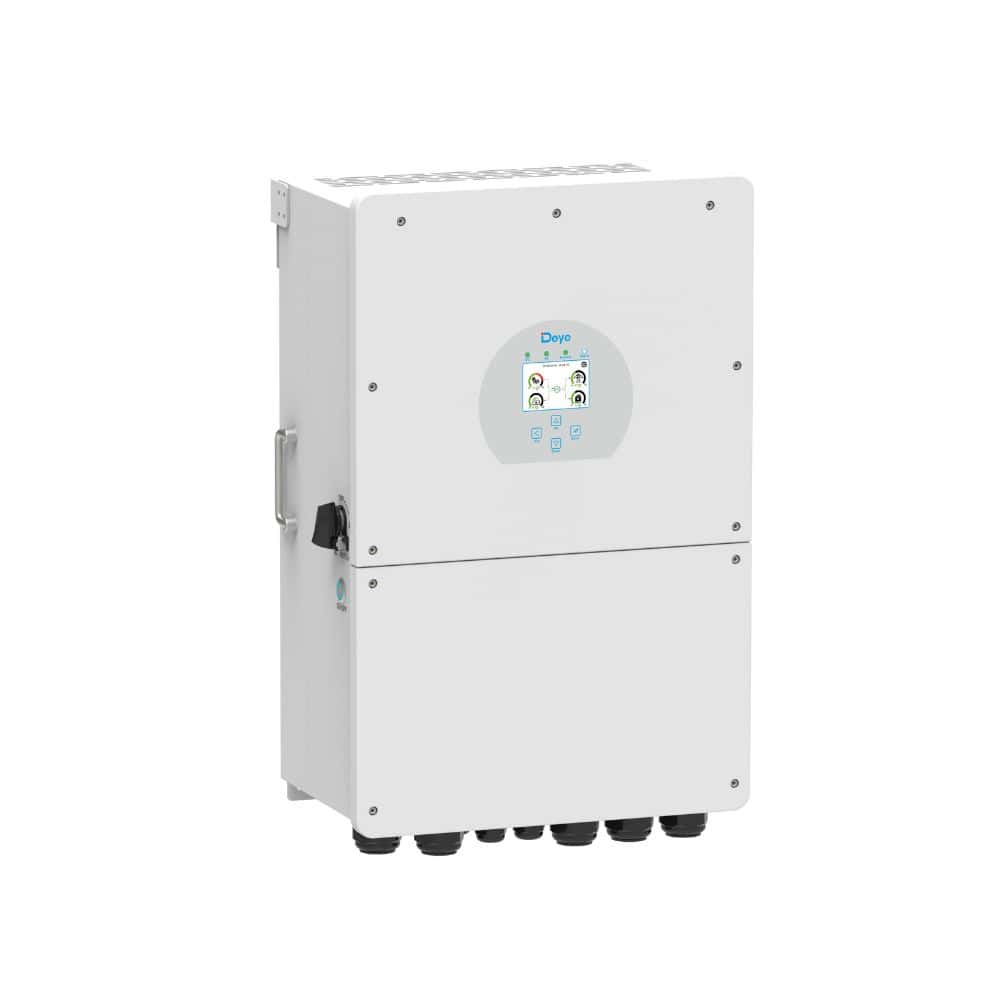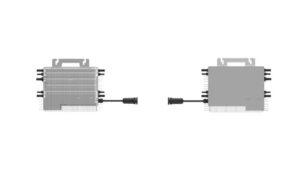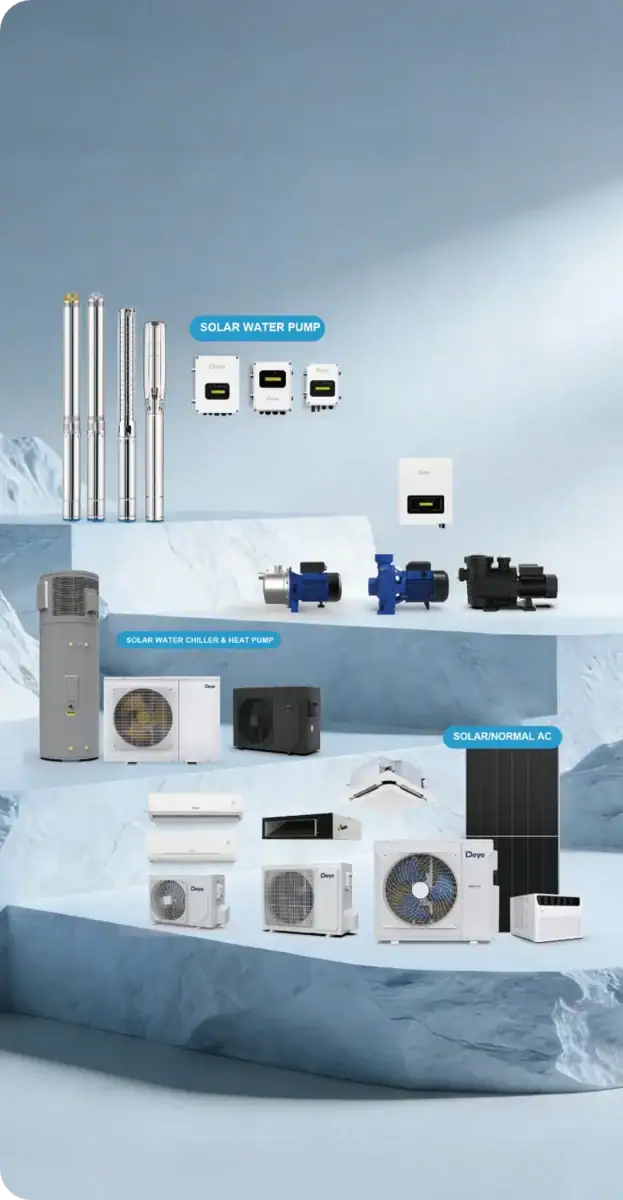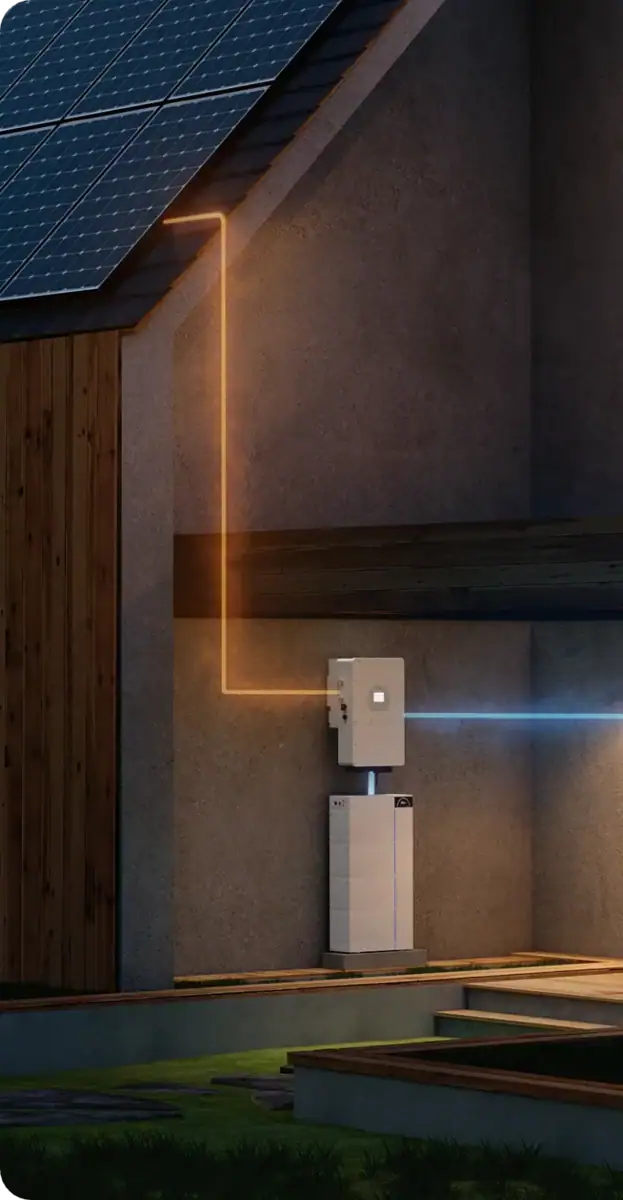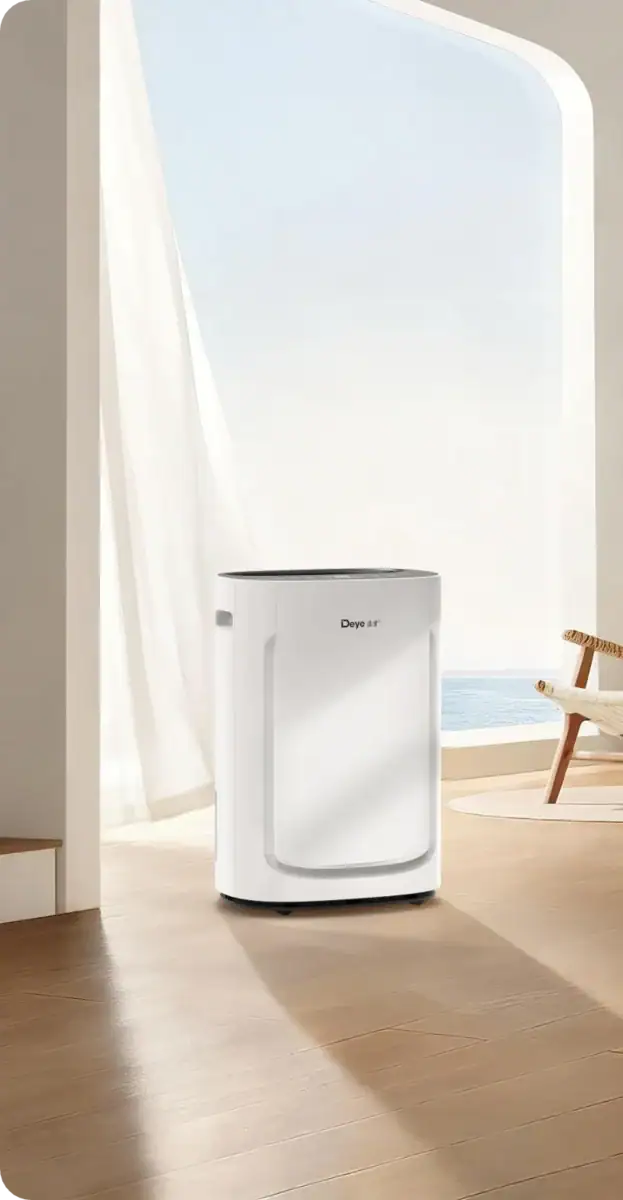A hybrid solar inverter is an all-in-one device that acts as the smart brain for a home solar power system. It combines the job of a standard solar inverter and a battery inverter into a single unit. It converts sunlight into usable electricity, stores any excess power in batteries for later use, and automatically provides backup power from those batteries during a blackout.
This post will explore the top four benefits of a hybrid solar inverter, helping you decide if it’s the right investment for your home.
What Exactly is a Hybrid Solar Inverter?
Think of a standard solar power system. You have panels that capture sunlight, and an inverter that converts that energy into usable electricity for your home. Now, what if you want to add batteries to store power for later? Traditionally, that required a separate battery inverter and a more complex setup.
A hybrid solar inverter, however, elegantly combines all these functions into one sophisticated unit. In simple terms, it’s an all-in-one power management system that intelligently directs the flow of electricity between your solar panels, your solar batteries, and the public utility grid.
1. It’s a Power Converter:
Its most basic function is to convert the Direct Current (DC) electricity generated by your solar panels into the Alternating Current (AC) electricity that powers your lights, appliances, and electronics.
2. It’s a Smart Battery Charger:
A hybrid inverter continuously monitors your energy production and consumption. When your panels produce more electricity than your home is using, it automatically diverts that surplus energy to charge your battery bank, ensuring no precious solar power goes to waste.
3. It’s a Grid Manager:
It seamlessly integrates with the electrical grid. It can draw power from the grid to charge your batteries during off-peak hours if needed, and in some configurations, it can even send your excess stored solar power back to the grid, potentially earning you credits from your utility company.
Top4 Core Benefits: Why Choose a Hybrid Inverter?
By integrating multiple functions into one smart device, a hybrid inverter delivers a host of advantages for any homeowner. It moves beyond simply generating power to actively optimizing how you use it.
Benefit 1: Smart Energy Management and Lower Electricity Bills
This is often the most compelling reason to choose a hybrid system. A hybrid inverter gives you precise control over your energy consumption, which translates directly into cost savings.
- Using Solar First: It can be programmed to prioritize the use of power directly from your solar panels. Your home will run on free, clean solar energy whenever the sun is shining, dramatically reducing the amount of electricity you need to buy from your utility company.
- Storing Power for Later: Instead of sending excess solar power to the grid for a low credit, the inverter stores it in your batteries. You can then use this stored energy during the evening or on cloudy days, further increasing your energy independence and protecting you from peak electricity rates.
- Grid Savings (Even Without Batteries): Some hybrid inverters can be installed without a battery bank initially. In this setup, they can be programmed to send excess solar generation to the grid, which can still lead to significant savings over the life of the system if your utility offers a favorable buyback rate for solar energy.
Benefit 2: Uninterrupted Power Supply and Blackout Protection
For many, the peace of mind a hybrid inverter offers is priceless. We’ve all experienced the frustration of a power outage, but a hybrid system can make them a thing of the past.
- Seamless Backup Power: The moment the inverter detects a grid failure, it automatically switches over to battery power. The transition is so fast and smooth that you might not even notice the grid went down—your lights, Wi-Fi, and essential appliances will continue to run without interruption.
- An Important Note on Blackouts: It’s important to understand that for this backup function to work, the inverter needs to be installed with a dedicated backup box or Uninterruptible Power Supply (UPS). This component safely disconnects your home from the grid during an outage, allowing the inverter to create its own stable power supply. Without it, most hybrid inverters will shut down for safety reasons, just like a standard solar inverter.
Benefit 3: All-in-One Simplicity and System Compatibility
A hybrid inverter streamlines your entire solar installation, making it more efficient and ready for the future.
- Simplified Installation: By combining the solar inverter and battery inverter into one unit, a hybrid system has fewer components. This not only saves physical space on your wall but can also simplify the installation process, potentially reducing labor costs.
- Future-Proof Your Home: If you’re installing solar panels now but plan to add batteries later, a hybrid inverter is the smartest choice. It makes adding battery storage a simple, plug-and-play process down the road, saving you from having to buy a separate battery inverter and reconfigure your system later.
Benefit 4: Flexibility for Diverse Energy Sources
The versatility of a hybrid inverter extends beyond just solar panels and the grid.
- Ready for More: Many advanced hybrid models are designed to handle inputs from other power sources, such as a home wind turbine or a gas generator, giving you even more options for energy independence.
- Perfect for Mobile Living: This flexibility makes them ideal for RVs. An RVer with a hybrid inverter can program it to run off solar panels first, then automatically switch to shore power at a campsite when plugged in, all without any manual effort. If the shore power fails, the system instantly switches back to the battery, ensuring the comforts of home are never interrupted.
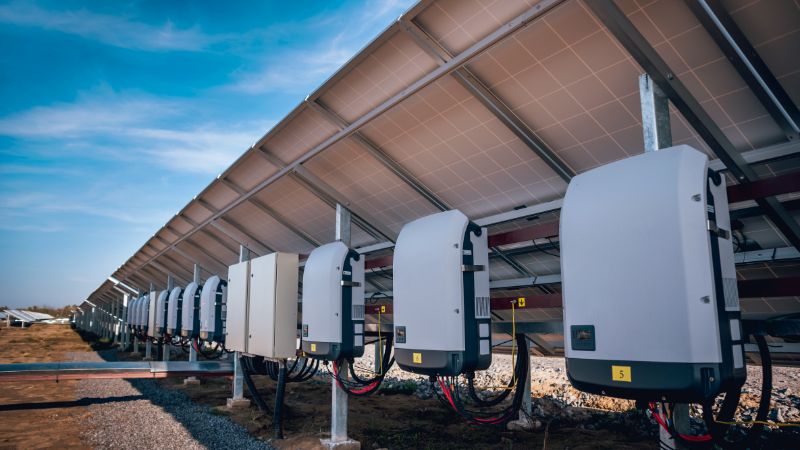
Potential Considerations and Downsides
While the benefits are compelling, it’s also important to consider the potential drawbacks before deciding if a hybrid inverter is right for you.
Higher Initial Investment:
Hybrid inverters are more technologically advanced than their traditional counterparts, which means they typically come with a higher upfront cost. It’s an investment in future flexibility and resilience, but the initial price tag is a factor to consider.
System Complexity:
Because a hybrid inverter manages multiple energy sources, the system can be more complex to install and maintain. It’s crucial to work with a qualified and experienced installer who understands the nuances of these systems.
Not Always Ideal for Existing Systems:
If you already have a solar panel system with a standard inverter, replacing it with a hybrid model might not be the most cost-effective route. In such cases, adding a separate battery inverter (a process known as AC coupling) could be a better financial choice.
Battery Compatibility:
Not all hybrid inverters work with all types of batteries. Some are designed for specific battery chemistries or brands. This is an important detail to discuss with your installer to ensure you have compatible options for future upgrades. Of course, here is the next section of the blog post.
Who Should Consider a Hybrid Solar Inverter?
A hybrid inverter is a powerful tool, but it’s particularly well-suited for certain situations. You might be the ideal candidate for a hybrid system if you identify with one of the following scenarios:
1. You Live in an Area with an Unreliable Grid.
If you frequently experience power outages, the backup power capability of a hybrid inverter and battery system is a game-changer. It provides the reliability and peace of mind that your home will remain powered through any grid instability.

2. You’re Planning for Future Battery Storage.
Perhaps you’re ready to go solar now but want to wait to add a battery. A hybrid inverter is the perfect “battery-ready” solution. It allows you to invest in solar today while keeping the door open for easy and cost-effective battery integration down the road.
3. You Want to Maximize Your Use of Solar Energy.
If your goal is to use as much of your own clean energy as possible and minimize what you pull from the grid, a hybrid inverter is essential. It ensures that the valuable solar energy you generate doesn’t go to waste, storing it for when you need it most. Of course. Here is the final section of the blog post.
Conclusion
A hybrid solar inverter is the key to a smarter, more resilient home energy system. By offering energy independence, significant cost savings, and reliable backup power, it puts the control of your home’s energy firmly in your hands.
While it represents a significant investment, the advanced features and future-ready flexibility of a hybrid inverter make it a cornerstone of modern energy management. It empowers homeowners to not only reduce their carbon footprint but also to secure their energy future.
If you’re ready to take the next step toward energy independence, consult Deye for professional solutions. As an innovator in new energy inverter technology, Deye provides “intelligent, healthy, energy-saving, and environment-friendly” products. Deye hybrid inverters are designed for maximum efficiency and reliability, with models like the SUN-12/14/16K-SG01LP1-EU offering features such as high charging/discharging capacity, generator compatibility, and support for multiple battery types.

